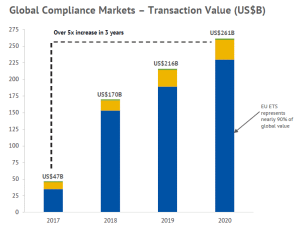Buying Carbon Credit Exchanges
The carbon credit market is gaining in popularity as companies begin to offset their emissions. Large corporations such as Delta, Netflix, Disney, and Alphabet are among the biggest buyers of carbon credits. Companies that exceed their emission limits can purchase these offsets to cover their emissions. These credits can range from a few cents for afforestation projects to $300 per ton for technology-based removal projects, such as CCS.
Companies can also sell the excess carbon credits to others on the carbon credit exchange market. There are a variety of carbon exchanges in operation, and some of these will soon be offering individual investors the opportunity to purchase carbon credits. While there is still some uncertainty about the structure of these markets, it is clear that companies are beginning to buy credits.
Website design By BotEap.com
Several factors affect the price of a carbon credit. These include its vintage, the geography of the project, and the delivery time. Also, the attributes associated with the underlying project will affect the price. If the project is a community-based one, it may trade at a higher premium to industrial projects. This is because the local groups overseeing these projects typically have more experience and knowledge about generating environmental and social co-benefits.
Which Companies Are Buying Carbon Credit Exchanges?
In addition to regulated and voluntary carbon markets, there are a few companies that are emerging in the carbon market. These companies are taking advantage of the efficiency of the blockchain to create securitized carbon credits. ACX, for instance, uses recent blockchain technology to enable companies to mark-to-market their carbon value. ACX has been able to achieve this by leveraging the speed and efficiency of blockchain technology to create a DLT exchange.
Another carbon market, the Carbon Offsetting and Reduction Scheme for International Aviation (CORSIA), was launched by the aviation industry to offset its carbon emissions. Airline operators participating in CORSIA have pledged to offset all their CO2 emissions above the baseline level in 2019.
Xpansiv, another carbon market, is a spot exchange that hosts 90% of the voluntary carbon credit transactions worldwide. CTX is also a member-based spot exchange that offers a carbon footprint calculation and an over-the-counter market for buying and selling carbon offsets.
Other companies that are purchasing carbon credits are individual investors and organizations. Individuals can purchase carbon credits directly from the source, or they can purchase them from a broker. Both methods allow individual investors to cash out later if the price of the credits increases.
Many financiers have carbon project development arms. Some of these companies developed their own third-party verification systems. Others, like Verra, develop standards. They work to ensure the projects comply with the basic specifications and volume of a project.
To purchase carbon credits, companies must meet certain legal requirements. For example, they must provide additional co-benefits in line with the UN Sustainable Development Goals. It is important for companies to know if the underlying project meets these criteria.
Some companies are not able to determine the differences between different types of credits. They may not know which credits are sourced from community-based projects and which come from industrial projects.